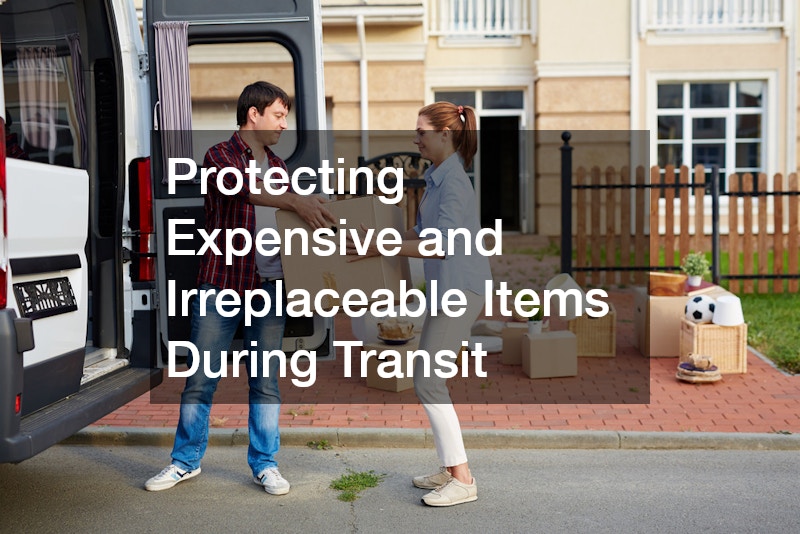Moving across the country or to another state can be one of the biggest transitions your family will ever experience. Unlike a local move, a long-distance relocation requires more planning, organization, and patience to ensure everything goes smoothly. From packing your belongings to arranging transportation and settling into a new home, every detail matters. The process can feel overwhelming at first, but breaking it down into smaller, manageable steps makes it easier to handle. With the right preparation and resources, you can minimize stress, keep your possessions safe, and help your family adjust comfortably to their new environment.
Creating a Detailed Plan for Your Long-Distance Relocation
A successful relocation starts with a solid plan. Establishing a timeline several months before your moving date helps ensure that nothing is overlooked. Begin by taking inventory of your household items, determining what to bring, sell, or donate. Creating a budget is equally important, as long-distance moves can involve higher transportation costs, storage fees, and travel expenses. Planning ahead allows you to allocate funds wisely and avoid last-minute surprises. A clear schedule that outlines key milestones—such as packing deadlines, utility transfers, and vehicle arrangements—keeps your move organized from start to finish.
If you’re preparing for a long distance move, consider creating a detailed checklist that includes both logistics and personal responsibilities. Include reminders for things like school transfers, medical record requests, and change-of-address forms. This type of structured approach helps balance the emotional and practical aspects of moving, ensuring that your family remains focused and prepared. Keeping communication open among family members is also crucial—make sure everyone knows their role in the moving process. A well-planned strategy not only reduces stress but also helps make the entire relocation experience smoother and more efficient.
Choosing the Right Professionals to Handle Your Move
One of the most critical decisions during a move is selecting the right professionals to assist you. Experienced movers can make a world of difference, handling heavy lifting, packing, and transportation so you can focus on your family and other logistics. A reputable moving company provides reliability, efficiency, and peace of mind knowing that your belongings are handled with care. When evaluating companies, look for those with strong reviews, proper licensing, and transparent pricing. It’s also wise to request quotes from multiple providers to compare services and ensure you’re getting the best value for your investment.
Hiring professional movers can greatly simplify your relocation process, especially for long-distance transitions that require coordination across states. Many movers offer full-service options that include packing materials, loading, and unloading, as well as shipment tracking for added convenience. They can also help you navigate any special requirements, such as transporting fragile or bulky items safely. By partnering with a trusted team, you reduce the risk of damage, delays, or miscommunication throughout the process. Professional moving assistance allows you to focus on your family’s comfort and adjustment rather than the physical demands of relocation.
Comparing Costs and Services Among Trusted Providers
When planning a major relocation, it’s important to understand that not all moving providers offer the same level of service or pricing. Some companies may specialize in long-distance logistics, while others focus on local or regional moves. Comparing costs, services, and contract details helps ensure you’re working with a provider that fits both your budget and expectations. Beyond basic transportation, consider factors like insurance coverage, packing assistance, and storage options. Taking the time to research and compare multiple quotes can save you money while helping you find a company that aligns with your moving priorities.
Working with reputable moving businesses gives you the flexibility to choose services that best suit your family’s needs. Many professional movers offer customizable packages, allowing you to select only the services you truly need—whether that’s packing, assembly, storage, or specialty handling. Always ask for itemized estimates to understand where your money is going and to avoid hidden fees. Reliable moving providers will gladly explain their rates and provide documentation of their credentials and insurance. By carefully evaluating your options, you can confidently hire a team that delivers both quality and value for your long-distance relocation.
Coordinating Logistics With Reliable Transportation Experts
A long-distance move involves more than just packing boxes—it requires careful coordination of timing, routes, and transportation. Effective logistics ensure that your belongings arrive on schedule and in the same condition they left your old home. The key is to plan early and maintain clear communication with the team handling your move. Tracking shipments, confirming delivery windows, and preparing for potential delays can prevent unnecessary stress. A structured logistical approach helps ensure that every stage of your move—from pickup to unloading—is seamless and well-organized.
Partnering with trusted moving companies can help you manage these logistics efficiently. Many long-distance movers now offer real-time tracking systems that allow you to monitor your shipment’s progress across state lines. They also provide clear delivery estimates, giving you time to prepare your new space before the truck arrives. Additionally, experienced companies understand how to handle challenges such as weather delays, road restrictions, or unexpected reroutes. With professionals managing the details, you can feel confident that your belongings are being transported safely and on schedule.
Protecting Expensive and Irreplaceable Items During Transit
Every move involves a mix of everyday items and valuable possessions that require special attention. Protecting delicate, antique, or high-value items is essential to prevent loss or damage during long-distance transport. Begin by identifying which belongings need extra care, such as artwork, jewelry, electronics, or family heirlooms. Invest in sturdy packing materials, including bubble wrap, custom boxes, and padding. Label each fragile item clearly and, if possible, keep smaller valuables with you rather than packing them with larger shipments. Taking proactive steps helps safeguard what matters most throughout the moving journey.
For particularly delicate or costly items, it’s worth working with high value specialized delivery services that focus on secure handling and transportation. These services use protective materials, GPS tracking, and climate-controlled vehicles to maintain the integrity of valuable items. They’re trained to handle custom packing for items that can’t be boxed conventionally, such as sculptures, instruments, or rare collectibles. While this option may come with additional costs, it offers priceless peace of mind knowing your valuables are in expert hands. By prioritizing security and professional care, you ensure that your most treasured possessions arrive safely at your new home.
Understanding Legal and Contractual Considerations Before Moving
A long-distance move often involves more than just physical relocation—it can also include legal and contractual obligations that require careful attention. From property transfers to lease agreements, understanding the paperwork involved helps prevent delays and misunderstandings. It’s important to review all moving contracts, especially those detailing insurance coverage, delivery timelines, and liability in case of damage. If you’re buying or selling a home, familiarize yourself with your state’s real estate laws and closing procedures to ensure everything goes smoothly. Being proactive with documentation helps protect your rights and ensures a seamless transition into your new residence.
Before completing your move, consulting with a qualified real estate attorney can help you navigate the legal complexities involved. An attorney can review contracts, confirm property titles, and ensure that your relocation complies with local and state regulations. They can also assist with lease terminations, escrow transfers, and potential disputes that may arise during the sale or purchase process. Having a legal expert on your side provides peace of mind and minimizes the risk of costly mistakes. By taking care of these legal details early, you can focus on your family and the excitement of settling into your new home.
Packing and Securing Large Household Items Properly
Packing for a long-distance move is a significant task, especially when dealing with bulky or fragile household items. Large pieces of furniture require extra care to ensure they aren’t damaged during loading, transit, or unloading. Disassemble items like tables and bed frames whenever possible, and use quality packing materials such as moving blankets, straps, and corner protectors. Proper packing not only safeguards your belongings but also makes loading and unloading more efficient. Labeling each box and piece of furniture clearly will help movers know where to place everything in your new home.
Special attention should be given to pieces like dining room furniture, which are both functional and valuable. These items are often made from solid wood or glass, making them susceptible to scratches, chips, or breaks if not packed correctly. Wrap table legs and edges in padding, and cover surfaces with protective blankets or foam sheets. Chairs can be stacked or wrapped individually, depending on their design. By taking the time to secure large furniture properly, you reduce the likelihood of costly repairs or replacements after the move. Careful preparation ensures your new home feels complete and comfortable from the first day.
Using Smart Storage Solutions for Temporary or Overflow Needs
During a long-distance move, timing doesn’t always align perfectly—sometimes you need a safe place to keep your belongings until your new home is ready. Using temporary storage can make the transition much smoother and less stressful. Whether you’re downsizing, waiting for construction to finish, or simply need extra space while organizing your new home, short-term storage solutions keep your items secure and accessible. The key is to choose a storage option that offers flexibility, climate control, and strong security measures.
One convenient solution is to use storage containers, which allow you to pack at your own pace and have your belongings transported when you’re ready. These portable units can be delivered directly to your property, making it easier to load and organize items without the rush of moving day. Once packed, the containers can be picked up and stored at a secure facility until you need them delivered to your new address. This flexibility is especially valuable for long-distance moves where timing can be unpredictable. Using portable storage gives you greater control over your relocation and reduces the stress of coordinating every detail at once.
Managing Waste and Unwanted Items Before Moving Day
Decluttering before a long-distance move is one of the best ways to save time, money, and energy. Moving unnecessary items increases transportation costs and makes packing more complicated. Before you start loading boxes, take time to sort through every room and decide what’s worth keeping, donating, or discarding. Hosting a yard sale or donating gently used belongings to local charities can lighten your load while benefiting others. Fewer items also mean less time spent unpacking and organizing when you arrive at your new home, allowing you to settle in faster and more efficiently.
For large-scale cleanouts or remodeling before departure, renting a roll off dumpster rental can make waste disposal much easier. These containers can handle furniture, old appliances, and construction debris safely and efficiently. A dumpster on-site keeps your property organized during the moving process and ensures you comply with local disposal regulations. Many rental services offer flexible pickup and delivery schedules to fit your moving timeline. Using a dumpster service eliminates multiple trips to the landfill, helping you focus your time and energy on more important moving tasks. By clearing out clutter before the big day, you create a more streamlined and stress-free relocation experience.
Transporting Vehicles and Oversized Equipment Safely
Long-distance relocations often require more than just moving household items—vehicles, trailers, and heavy equipment also need careful transportation. Whether you’re relocating a personal car, motorcycle, or outdoor equipment, it’s essential to ensure these items are properly secured and protected during transit. Specialized vehicle transport services can help prevent damage and wear that might occur from driving long distances. Preparing in advance, including draining fluids, checking tire pressure, and removing personal items, ensures a safe and smooth transfer. Proper planning for large equipment moves keeps your relocation on schedule and avoids costly complications.
When transporting larger items or multiple vehicles, using flatbeds for truck transport can provide a reliable solution. These trucks are designed to carry heavy or bulky loads over long distances with stability and safety. Professional transporters use secure tie-down systems and protective coverings to prevent movement and damage while in transit. Flatbed transport is also ideal for oversized equipment that doesn’t fit inside traditional moving trailers. By hiring a professional team experienced in long-haul transportation, you can rest assured that your vehicles and machinery will arrive safely and on time, ready for use at your new location.
Preparing your belongings and family for a long-distance move takes time, organization, and teamwork, but a well-planned strategy can make the entire experience more manageable. From choosing the right movers to packing your valuables and securing transportation, every detail contributes to a smoother transition. Clear communication, early preparation, and the use of professional services ensure your belongings stay safe and your family remains comfortable throughout the process. Planning ahead also allows you to avoid last-minute issues that could delay your move or add unnecessary stress.
Beyond logistics, long-distance moves also represent new beginnings for families. Taking the time to organize, downsize, and prepare emotionally helps everyone adjust to the change more easily. Incorporating professional support—whether it’s movers, storage providers, or transport specialists—allows you to focus on settling into your new home rather than worrying about the details. With proper planning and the right resources, you can turn what might seem like a challenging task into an exciting and rewarding fresh start for your family.




